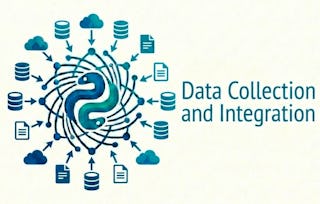In this course you will learn how to use survey weights to estimate descriptive statistics, like means and totals, and more complicated quantities like model parameters for linear and logistic regressions. Software capabilities will be covered with R® receiving particular emphasis. The course will also cover the basics of record linkage and statistical matching—both of which are becoming more important as ways of combining data from different sources. Combining of datasets raises ethical issues which the course reviews. Informed consent may have to be obtained from persons to allow their data to be linked. You will learn about differences in the legal requirements in different countries.

Combining and Analyzing Complex Data

Combining and Analyzing Complex Data
This course is part of Survey Data Collection and Analytics Specialization

Instructor: Richard Valliant, Ph.D.
9,388 already enrolled
Included with
69 reviews
Skills you'll gain
Details to know

Add to your LinkedIn profile
4 assignments
See how employees at top companies are mastering in-demand skills

Build your subject-matter expertise
- Learn new concepts from industry experts
- Gain a foundational understanding of a subject or tool
- Develop job-relevant skills with hands-on projects
- Earn a shareable career certificate

There are 4 modules in this course
After completing Modules 1 and 2 of this course you will understand how to estimate descriptive statistics, overall and for subgroups, when you deal with survey data. We will review software for estimation (R, Stata, SAS) with examples for how to estimate things like means, proportions, and totals. You will also learn how to estimate parameters in linear, logistic, and other models and learn software options with emphasis on R. Module 3 and 4 discuss how you can add additional data to your analysis. This requires knowing about record linkage techniques, and what it takes to get permission to link data.
What's included
7 videos6 readings1 assignment
Module 2 covers how to estimate linear and logistic model parameters using survey data. After completing this module, you will understand how the methods used differ from the ones for non-survey data. We also cover the features of survey data sets that need to be accounted for when estimating standard errors of estimated model parameters.
What's included
8 videos8 readings1 assignment
Module starts with the current debate on using more (linked) administrative records in the U.S. Federal Statistical System, and a general motivation for linking records. Several examples will be given on why it is useful to link data. Challenges of record linkage will be discussed. A brief overview over key linkage techniques is included as well.
What's included
4 videos12 readings1 assignment1 discussion prompt
This module will discuss key issues in obtaining consent to record linkage. Failure to consent can lead to bias estimates. Current research examples will be given as well as practical suggestions on how to obtain linkage consent.
What's included
5 videos3 readings1 assignment
Earn a career certificate
Add this credential to your LinkedIn profile, resume, or CV. Share it on social media and in your performance review.
Instructor

Offered by
Explore more from Data Analysis
 Status: Free Trial
Status: Free TrialUniversity of Colorado Boulder
 Status: Preview
Status: Preview Status: Free Trial
Status: Free TrialUniversity of Maryland, College Park
 Status: Free Trial
Status: Free Trial
Why people choose Coursera for their career

Felipe M.

Jennifer J.

Larry W.

Chaitanya A.
Learner reviews
- 5 stars
53.62%
- 4 stars
24.63%
- 3 stars
11.59%
- 2 stars
4.34%
- 1 star
5.79%
Showing 3 of 69
Reviewed on Feb 11, 2021
Great course! Thanks, Professsor Valliant and Professor Frauke Kreuter.

Open new doors with Coursera Plus
Unlimited access to 10,000+ world-class courses, hands-on projects, and job-ready certificate programs - all included in your subscription
Advance your career with an online degree
Earn a degree from world-class universities - 100% online
Join over 3,400 global companies that choose Coursera for Business
Upskill your employees to excel in the digital economy
Frequently asked questions
To access the course materials, assignments and to earn a Certificate, you will need to purchase the Certificate experience when you enroll in a course. You can try a Free Trial instead, or apply for Financial Aid. The course may offer 'Full Course, No Certificate' instead. This option lets you see all course materials, submit required assessments, and get a final grade. This also means that you will not be able to purchase a Certificate experience.
When you enroll in the course, you get access to all of the courses in the Specialization, and you earn a certificate when you complete the work. Your electronic Certificate will be added to your Accomplishments page - from there, you can print your Certificate or add it to your LinkedIn profile.
Yes. In select learning programs, you can apply for financial aid or a scholarship if you can’t afford the enrollment fee. If fin aid or scholarship is available for your learning program selection, you’ll find a link to apply on the description page.
More questions
Financial aid available,

